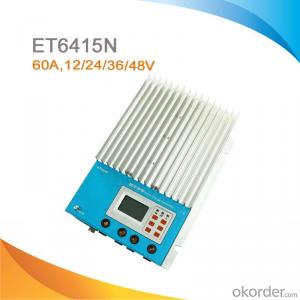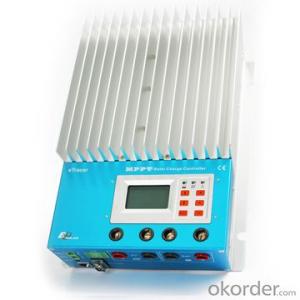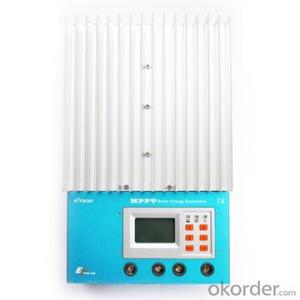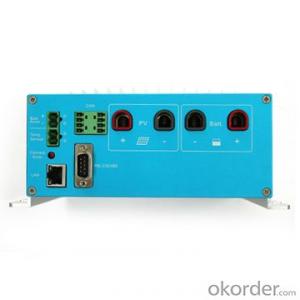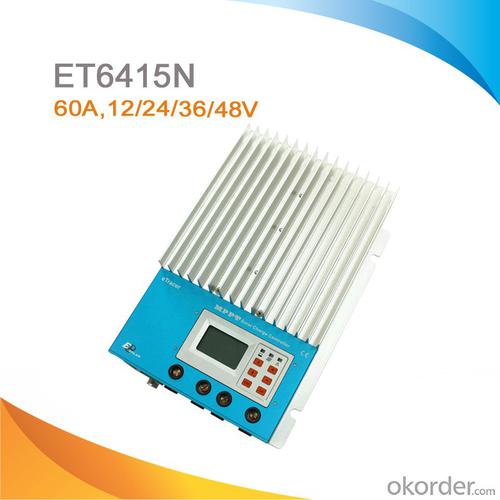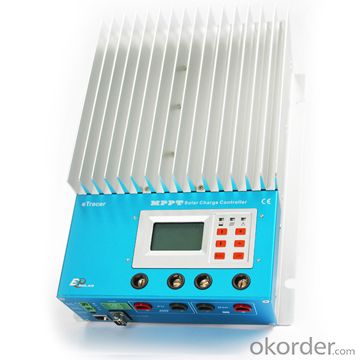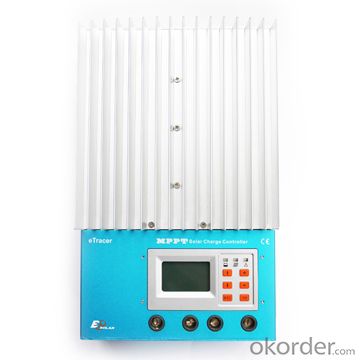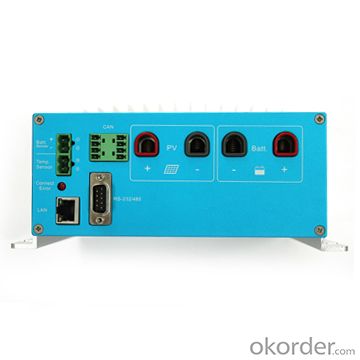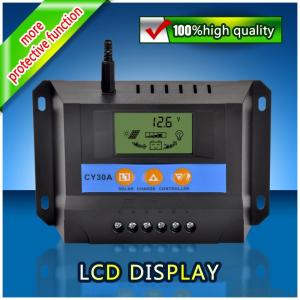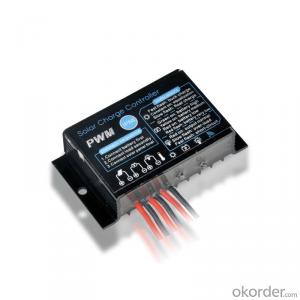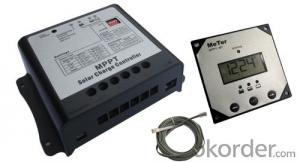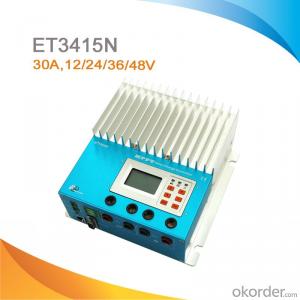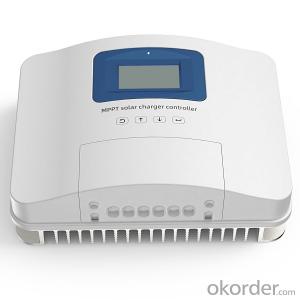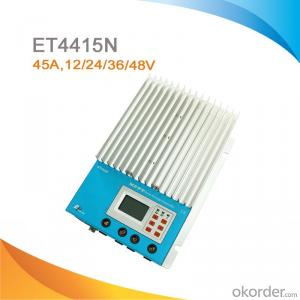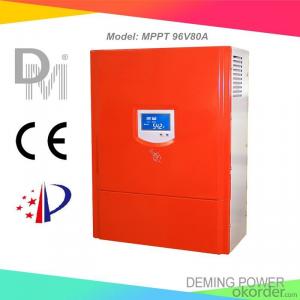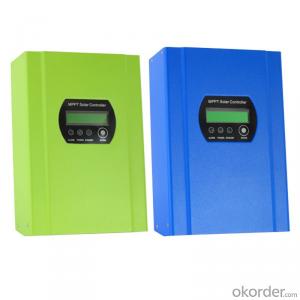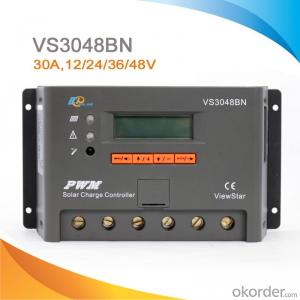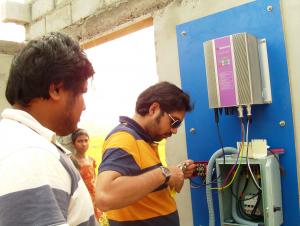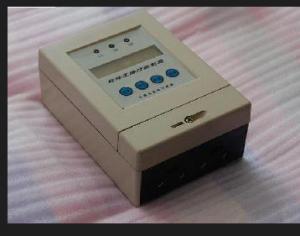MPPT Solar System Charge Controller 60A,12/24/36/48V,ET6415N
OKorder Service Pledge
OKorder Financial Service
You Might Also Like
Descriptions
This is an industrial grade product with advanced Maximum Power Point Tracking (MPPT) algorithm. It can deliver the maximum available power for charging batteries and charge a lower nominal voltage battery from a higher nominal voltage array. And can be applied in the off-grid PV systems up to 3KW. The die-cast aluminum design ensures excellent heat dispersion.
Specifications
MPPT charge controller
Maximum power point tracker
temperature compensation
LCD display
Communicate with PC
Features:
·12/24/36/48V auto work
·Advanced MPPT technology
·Several seconds tracking speed
·High Tracking efficiency of 99%
·Multiphase synchronous rectification technology
·Peak conversion efficiency of 98%
·DSP&ARM processors architecture ensures high speed and performance
·Gel, Sealed, Flooded battery option
·Max. 450 days data logging by connection to PC
·Multifunction LCD displays system data and status
·Three kinds of communication ports :RS232, CAN BUS and Ethernet
·Three stages charging optimizes battery performance
·Software update by users
Electronic Protections:
·PV short circuit protection
·PV reverse polarity protection
·PV overvoltage alarm protection
·PV over current protection
·Battery overcharge protection
·Battery over discharge protection
·Battery reverse polarity protection
·Overheating protection
Specification:
Model | ET3415N |
Rated system voltage | 12V/24V /36V/48V auto work |
Rated battery current | 30A |
Max. PV open circuit voltage | 150V |
Voltage range | 8~72V |
Max.PV input power | 400W (12V) 800W (24V) 1200W (36V) 1600W (48V) |
Self-consumption | 1.4~2.2W |
Grounding | Negative |
Dimension | 231x203x105mm |
Terminal | 35mm2 |
Net Weight | 4.1kg |
Working temperature | -25℃~+55℃ |
Storage temperature range | -30℃~+85℃ |
Humidity | 10%-90% NC |
Enclosure | IP20 |
Altitude | ≤3000m |
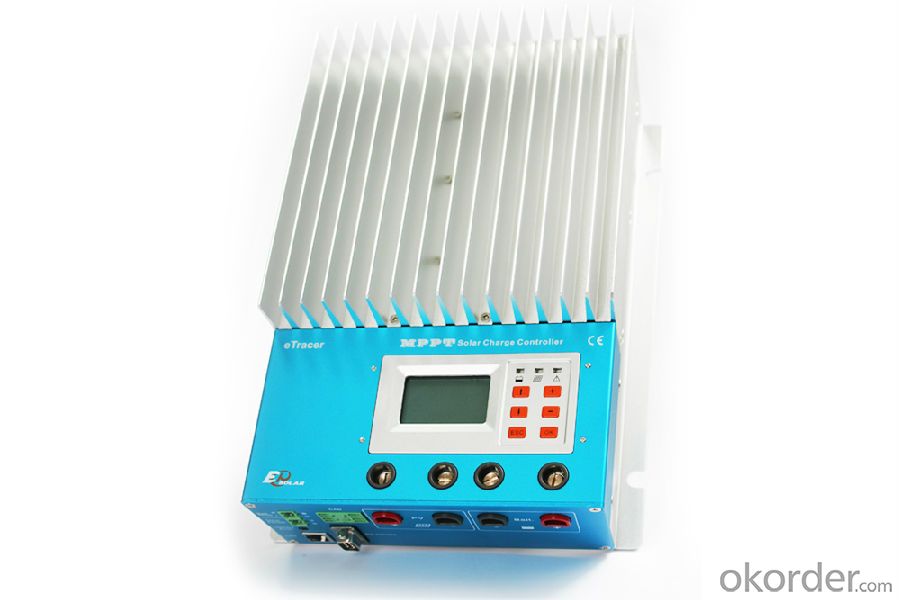
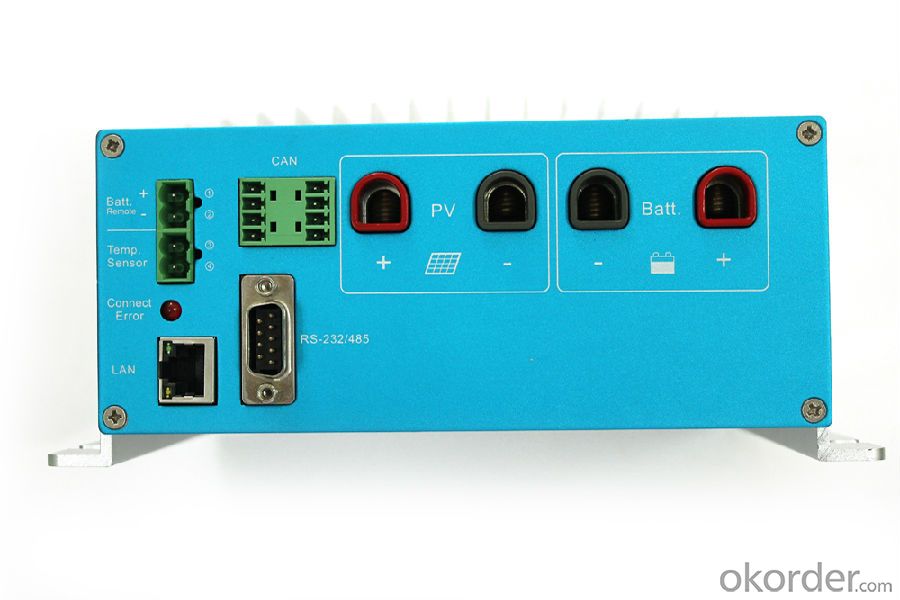
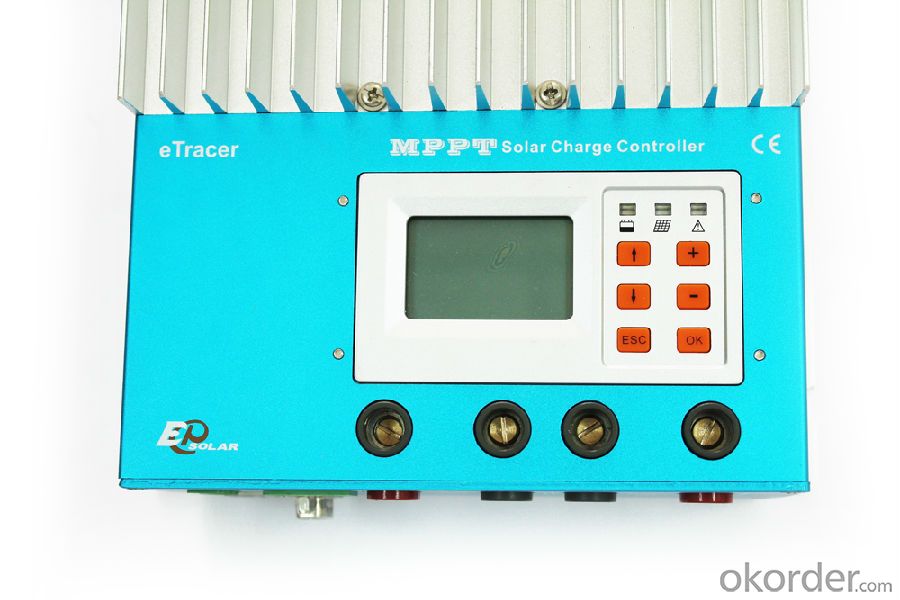
FAQ
1. What is included in the package?
1*MPPT Solar Charge Controller
1*User Manual
2. What does the battery red indicator LED mean?
Low voltage of battery
- Q: Can a solar controller be used with MPPT (Maximum Power Point Tracking) technology?
- Yes, a solar controller can be used with MPPT (Maximum Power Point Tracking) technology. In fact, MPPT technology is often incorporated into solar controllers to optimize the power output from solar panels by tracking and adjusting to the maximum power point of the panel. This allows for more efficient energy conversion and increased overall system performance.
- Q: Can a solar controller be used with a solar-powered RV or camper?
- Yes, a solar controller can be used with a solar-powered RV or camper. A solar controller regulates the charging process of the batteries in the RV or camper by managing the flow of electricity from the solar panels. It helps prevent overcharging and ensures efficient battery charging, extending their lifespan. Therefore, using a solar controller is essential for optimizing the solar power system in an RV or camper.
- Q: Can a solar controller be used for both solar panels and batteries?
- Yes, a solar controller can be used for both solar panels and batteries. It regulates the flow of electricity from the solar panels to the batteries, ensuring that the batteries are charged efficiently and preventing overcharging.
- Q: Can a solar controller be used with solar-powered charging stations?
- Yes, a solar controller can be used with solar-powered charging stations. A solar controller helps regulate and optimize the charging process by managing the flow of electricity from the solar panels to the charging stations. It ensures that the batteries are charged efficiently and protects them from overcharging or damage. Therefore, integrating a solar controller is essential for the proper functioning and longevity of solar-powered charging stations.
- Q: Can a solar controller handle varying environmental conditions?
- Yes, a solar controller is designed to handle varying environmental conditions. It is built to withstand extreme temperatures, humidity, and other environmental factors commonly found in outdoor settings. Additionally, solar controllers are equipped with protective features to ensure reliable operation and longevity in different environmental conditions.
- Q: What is the maximum load capacity a solar controller can handle?
- The maximum load capacity a solar controller can handle varies depending on the specific model and brand. It is typically indicated in the controller's specifications and can range from a few amps to several hundred amps.
- Q: How do I prevent overvoltage with a solar controller?
- To prevent overvoltage with a solar controller, there are a few steps you can take: 1. Choose the right solar controller: Make sure you select a solar controller that is designed to handle the voltage and current of your solar panels. Different controllers have different voltage and current ratings, so it's important to match them with your system's specifications. 2. Monitor the voltage: Regularly monitor the voltage of your solar panels to ensure it stays within the recommended range. Most solar controllers have a built-in display that shows the voltage, or you can use a voltmeter to measure it directly. If the voltage exceeds the maximum limit, it can lead to overvoltage issues. 3. Install a voltage regulator: In addition to a solar controller, consider installing a voltage regulator in your system. A voltage regulator helps to stabilize the voltage output from the solar panels and prevent overvoltage situations. It acts as a protective device that regulates the voltage to a safe level, ensuring the system operates efficiently and without any damage. 4. Implement a bypass diode: A bypass diode is another component you can add to your solar panel system to prevent overvoltage. It works by redirecting the excess voltage around a malfunctioning or shaded panel, preventing it from damaging the entire system. Bypass diodes are particularly useful in systems with multiple solar panels connected in series. 5. Grounding: Ensure your solar panels and solar controller are properly grounded. Grounding helps to protect against voltage surges and lightning strikes, which can cause overvoltage conditions. It provides a path for excess voltage to safely dissipate into the ground, minimizing the risk of damage to your system. Remember, overvoltage can damage your solar panel system and its components, so it's essential to take precautions to prevent it. Consulting with a professional or an expert in solar energy can also provide valuable insights specific to your system and its requirements.
- Q: Can a solar controller be used with solar panels that are connected to a power inverter?
- Yes, a solar controller can be used with solar panels that are connected to a power inverter. The solar controller regulates the charging of the batteries connected to the solar panels, while the power inverter converts the DC power from the panels into AC power for use in electrical devices.
- Q: Can a solar controller be used with a solar-powered satellite communication system?
- Yes, a solar controller can be used with a solar-powered satellite communication system. A solar controller regulates and optimizes the charging of batteries in solar systems, ensuring efficient utilization of solar energy. In a solar-powered satellite communication system, the solar controller would play a crucial role in managing the power generated by the solar panels, maintaining battery health, and providing a stable power supply to the communication components of the satellite system.
- Q: Can a solar controller be used in a solar-powered electric fence system?
- Yes, a solar controller can be used in a solar-powered electric fence system. A solar controller helps regulate the charging and discharging of the batteries in the system, ensuring efficient and effective operation of the electric fence.
Send your message to us
MPPT Solar System Charge Controller 60A,12/24/36/48V,ET6415N
OKorder Service Pledge
OKorder Financial Service
Similar products
Hot products
Hot Searches
Related keywords
